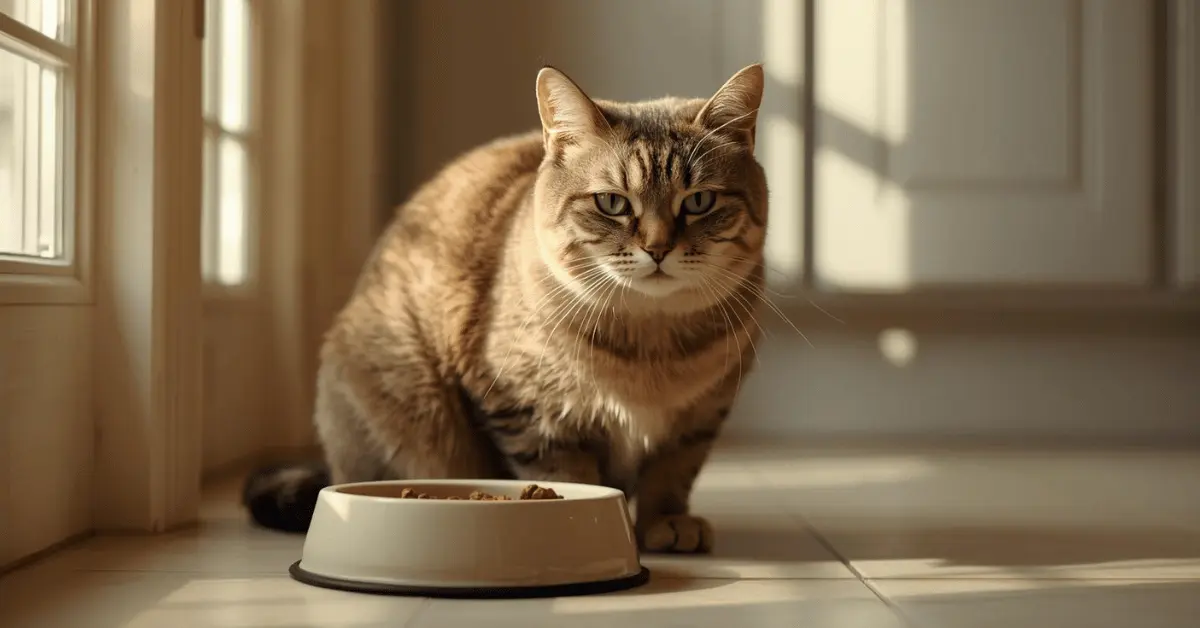Cats are notoriously picky eaters, but when digestive issues appear regularly, it may be more than fussiness — it could signal a sensitive stomach. Just like humans, cats can struggle with certain foods, environmental changes, or underlying medical conditions that disrupt digestion.
1. Frequent Vomiting or Regurgitation
Digestive distress often reveals itself through vomiting. If your cat is throwing up more than occasionally, it’s a red flag worth investigating.
Why Cats Vomit
While hairballs are normal, frequent vomiting could point to food intolerance, allergies, or even a reaction to dietary changes. A sensitive stomach often struggles to process rich proteins, artificial additives, or sudden food switches.
2. Loose or Irregular Stools
The litter box tells an important story about your cat’s digestive health. Soft stools, diarrhea, or unpredictable bowel movements often indicate a stomach that isn’t tolerating food well.
Signs in the Litter Box
If you notice persistent looseness, mucus, or unusual odors, it may be time to discuss with your vet whether food sensitivity, parasites, or a digestive disorder is to blame.
3. Reduced Appetite or Food Refusal
A sensitive stomach can make eating uncomfortable. Some cats refuse food altogether, while others show disinterest after a few bites.
When Loss of Appetite Is Serious
If your cat consistently skips meals or seems hesitant to eat, it’s not just picky behavior. It could be that certain ingredients are irritating their digestive system, making food unappealing.
4. Excessive Gas or Bloating
Though less obvious than vomiting, gas and bloating can also point to digestive problems. Cats with sensitive stomachs may appear restless, uncomfortable, or even meow after eating due to gas pain.
How to Notice It
Look for abdominal swelling, audible stomach gurgling, or frequent passing of gas — these are all signs that digestion is not running smoothly.
5. Weight Loss Despite Normal Feeding
When a cat’s body isn’t properly absorbing nutrients, weight loss can occur even if they eat regularly. This is particularly concerning in cats with sensitive stomachs because it signals poor nutrient absorption.
Why Weight Loss Happens
Malabsorption often happens when food irritates the stomach lining or passes too quickly through the digestive tract. Over time, this can lead to nutrient deficiencies and serious health risks.
Related Posts
- Why Your Cat Follows You Everywhere: 7 Reasons Explained
- Why Do Cats Meow at Night? 4 Fascinating Explanations
- Why Does My Cat Scratch the Furniture? 5 Fixable Reasons
- Why Do Cats Knead Blankets and Pillows? 5 Surprising Reasons
- Why Does My Cat Rub Its Face Against Me? 7 Cute Explanations
6. Lethargy and Lack of Energy
A healthy cat is usually curious and playful. If your cat seems unusually tired, sluggish, or withdrawn, it could stem from stomach discomfort or poor nutrient absorption.
Energy Levels as a Health Indicator
Digestive distress can make cats feel fatigued, just like in humans. Watch for changes in behaviour, such as reduced playtime or avoiding activities they once enjoyed.
7. Over-Grooming or Hair Loss
Digestive sensitivities don’t just show up in the litter box — they can affect the skin and coat too. Cats with stomach sensitivities sometimes over-groom due to irritation or develop patchy fur from nutritional imbalances.
The Stomach-Skin Connection
When a cat’s stomach struggles to process food properly, skin health may suffer. Over time, you may notice dull fur, dryness, or hair loss linked to poor digestion.
Common Causes of Sensitive Stomachs in Cats
Understanding why your cat’s stomach is upset is just as important as spotting the symptoms. Causes include:
- Food intolerance or allergies (often triggered by proteins, grains, or additives)
- Rapid dietary changes that shock the digestive system
- Underlying medical conditions such as inflammatory bowel disease or pancreatitis
- Stress or environmental factors like moving, new pets, or loud surroundings
Helping a Cat with a Sensitive Stomach
Once you recognize the signs, proactive steps can make a big difference.
Diet Adjustments
Switching to a sensitive stomach cat food with easily digestible proteins and limited ingredients can reduce irritation. Gradual food transitions over 7–10 days also minimize stomach upset.
Veterinary Guidance
If symptoms persist, consulting your vet is crucial. They may recommend diagnostic tests, probiotics, or prescription diets to improve digestion. For more guidance on cat nutrition, organizations like the Cornell Feline Health Center offer trusted resources.
Frequently Asked Questions
How can I tell if my cat has a sensitive stomach?
The most common signs include frequent vomiting, diarrhea, loss of appetite, gas, bloating, weight loss, and lethargy. If these symptoms happen regularly, your cat may have digestive sensitivities that need attention.
What foods are best for cats with sensitive stomachs?
Cats with sensitive stomachs usually do better on easily digestible, limited-ingredient diets. Look for foods with simple protein sources like chicken or turkey, and avoid artificial additives, fillers, or heavy grains.
Can stress cause stomach issues in cats?
Yes. Stress from environmental changes — such as moving homes, new pets, or loud noises — can contribute to digestive upset. Reducing stress can help improve both appetite and digestion.
When should I take my cat to the vet for stomach issues?
If your cat is vomiting or has diarrhea frequently, refuses food for more than 24 hours, or shows signs of weight loss and lethargy, it’s important to seek veterinary care. These symptoms can point to underlying health conditions.
How can I transition my cat to new food without upsetting their stomach?
Always switch gradually over 7–10 days by mixing the new food with the old in small amounts. This slow transition gives the digestive system time to adjust and reduces the risk of stomach upset.
Do probiotics help cats with sensitive stomachs?
Yes, in many cases probiotics can support a healthy gut microbiome, reduce digestive discomfort, and improve nutrient absorption. Always ask your vet before introducing supplements.

